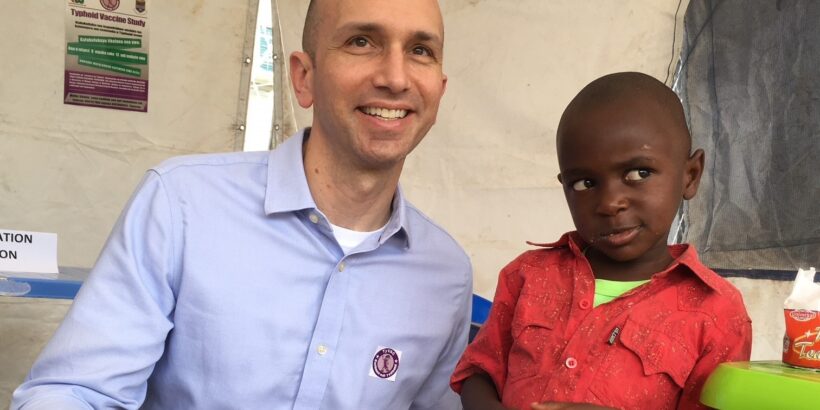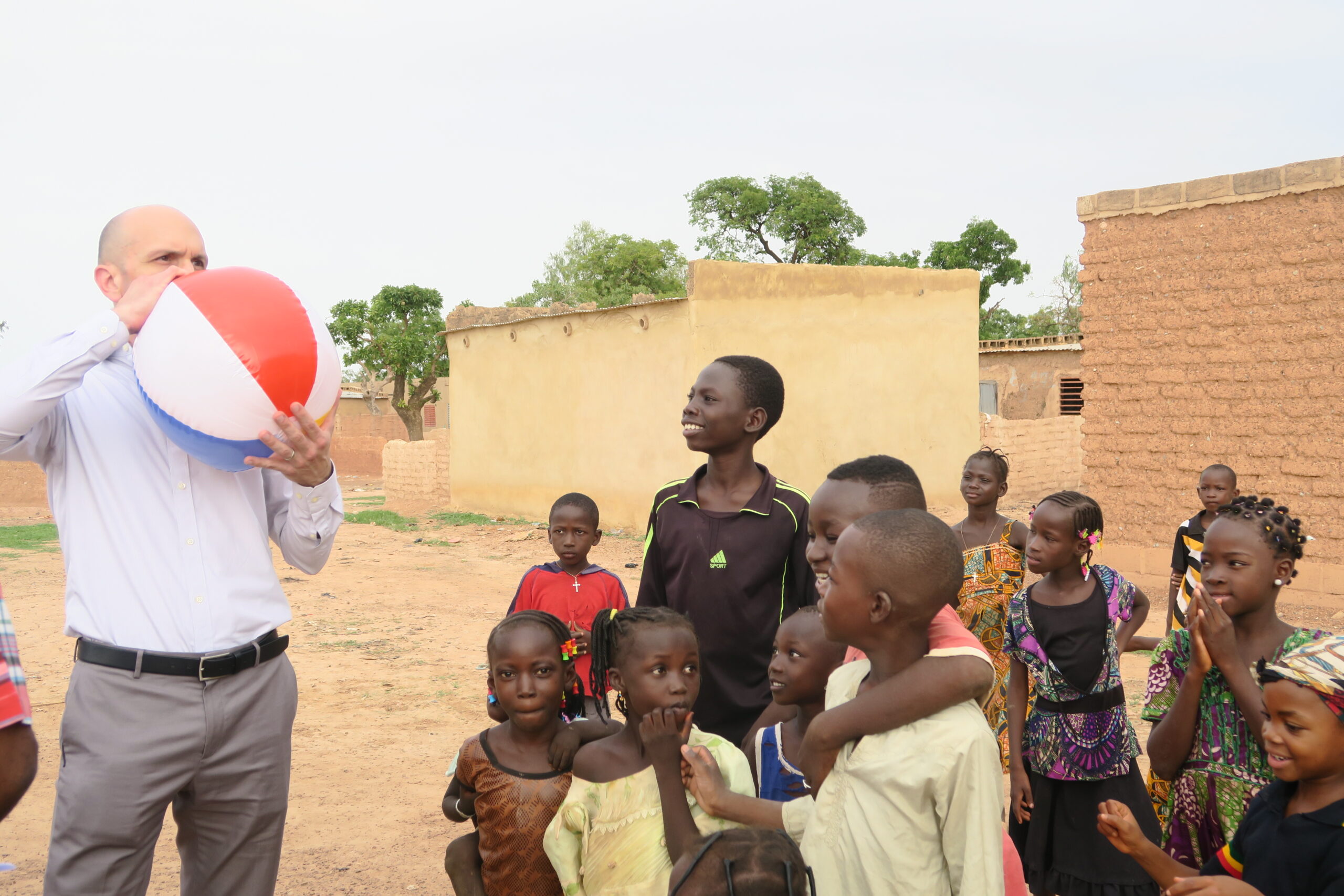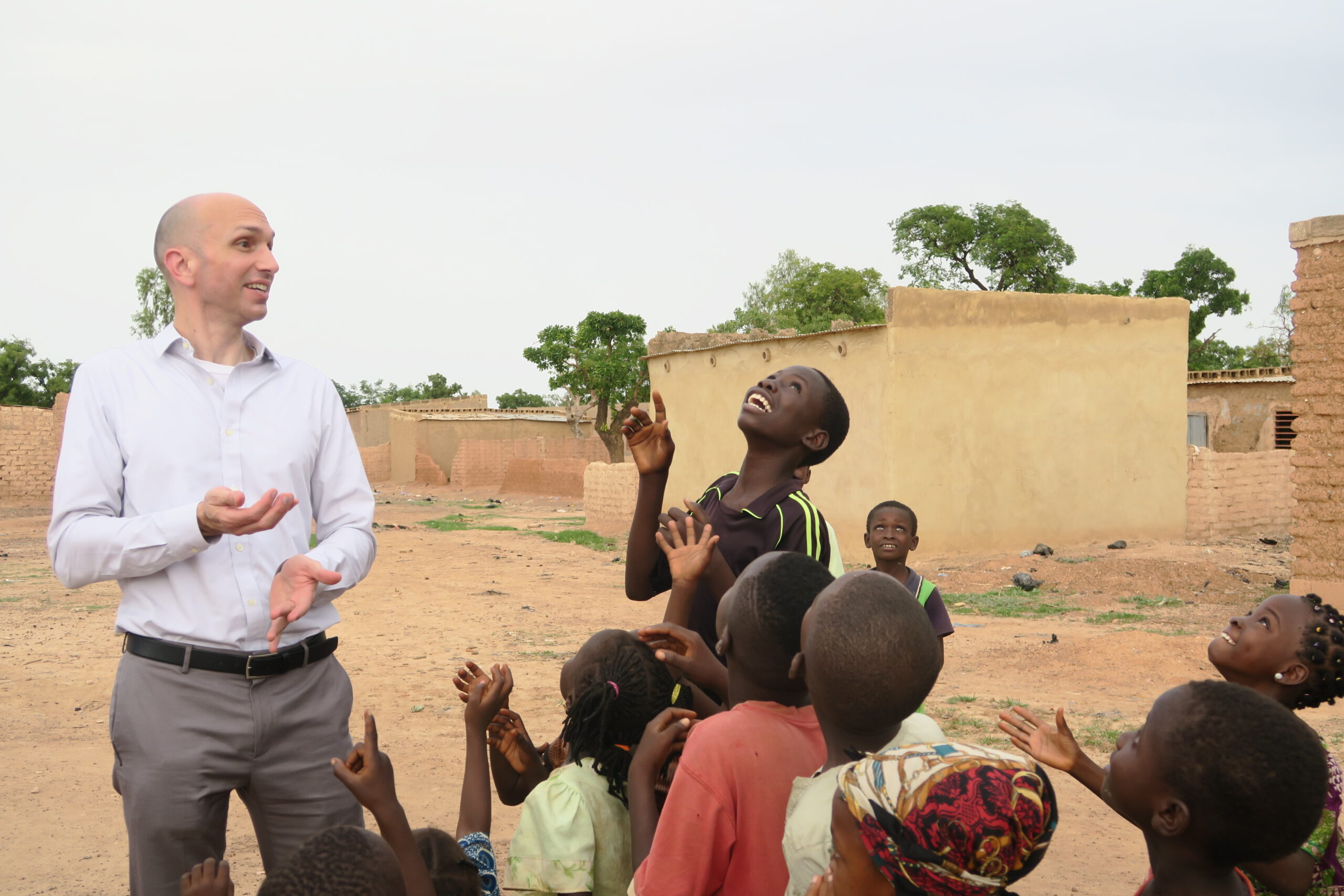Dr. Matt Laurens is not new to the typhoid field. As a Professor of Pediatrics, Medicine, and Pathology at the Center for Vaccine Development and Global Health at the University of Maryland School of Medicine, he has been an integral part of the Typhoid Vaccine Acceleration Consortium (TyVAC) since its inception. As the new TyVAC Project Director, we are excited to welcome Dr. Laurens into his new role and to learn more about him and his vision for the project and typhoid control.
Tell us more about yourself and why you entered the field of infectious disease.
I’m a pediatrician and a pediatric infectious diseases specialist. My passion for infectious diseases stems from a formative experience serving as a U.S. Peace Corps volunteer in Benin, West Africa. Living in a small village in a rural area, I witnessed firsthand many infectious diseases and made the connection that improved public health efforts could help communities avoid many diseases altogether. This sparked my interest in infectious diseases and caused me to seek a career that would explore ways to prevent diseases at the community level.
What drew you to child health specifically?
I’ve always been drawn to pediatrics as a specialty. I find the process of growth and development fascinating, and a perfect opportunity to set kids up for a healthy start to life. Also, during my U.S. Peace Corps experience, I participated in a child vaccination project that fueled my enthusiasm for promoting vaccines as a means to advance child health.
|
|
With expertise in prevention of malaria and other pathogens, what interests you most about typhoid specific work?
I’m drawn to work that directly addresses the healthcare needs of populations with limited resources, who are disproportionately affected by infectious diseases. Optimizing preventive methods to get the most impact in vulnerable groups is particularly gratifying. As typhoid commonly affects low-resource communities – and children in particular – access to a highly effective typhoid conjugate vaccine (TCV) in pediatric populations is especially impactful.
Why do you think it’s important, now more than ever, to Take on Typhoid?
We continue to witness the negative impacts of both climate change and drug resistance on typhoid disease burden. Climate change has increased the occurrence of natural disasters such as floods that can bring communities in contact with contaminated water sources and lead to infection. Drug resistance to commonly available therapies has left clinicians with limited options for typhoid treatment, increasing risk for typhoid complications, including hospitalizations, typhoid intestinal perforation, and death.
Beyond this, and drawing from my experience building community latrines and digging wells in Benin, I am passionate about promoting improvements in water, sanitation, and hygiene (WASH) to reduce typhoid disease burden and other enteric infections. For the foreseeable future, both climate change and drug resistance will continue to worsen while WASH improvements require a long-term strategy that takes time to achieve. This necessitates immediate intervention with TCVs and other preventive efforts to save lives.
What is your vision for typhoid prevention as the new TyVAC director?
My vision is to continue to build on the previous successes of TyVAC through introduction of TCVs in endemic countries, reaching more audiences to highlight the importance of typhoid as a global health priority, and ensuring data and tools are available for TCV decision-makers. Thanks to the dedication of TyVAC leadership and partners, the project has met terrific success to date and provided important evidence to facilitate vaccine introductions in sub-Saharan Africa and Asia. As additional information is shared from ongoing scientific research, I envision TyVAC continuing to play an important role in TCV research and implementation so that we optimize this public health tool to reduce typhoid disease and save lives.
Cover Photo: Dr. Matt Laurens with a child who received TCV in Malawi. Credit: CVD.





